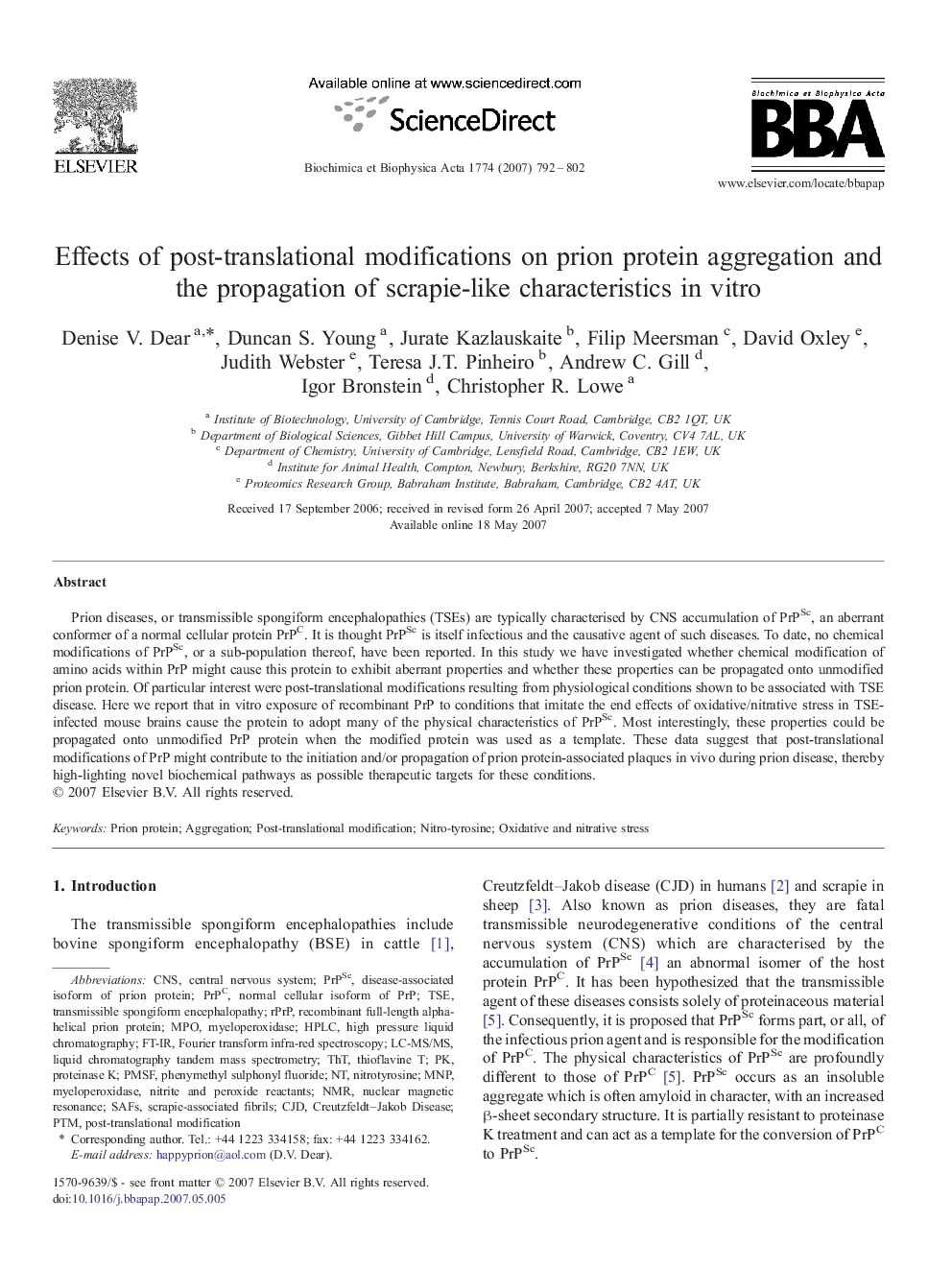| Article ID | Journal | Published Year | Pages | File Type |
|---|---|---|---|---|
| 1178371 | Biochimica et Biophysica Acta (BBA) - Proteins and Proteomics | 2007 | 11 Pages |
Prion diseases, or transmissible spongiform encephalopathies (TSEs) are typically characterised by CNS accumulation of PrPSc, an aberrant conformer of a normal cellular protein PrPC. It is thought PrPSc is itself infectious and the causative agent of such diseases. To date, no chemical modifications of PrPSc, or a sub-population thereof, have been reported. In this study we have investigated whether chemical modification of amino acids within PrP might cause this protein to exhibit aberrant properties and whether these properties can be propagated onto unmodified prion protein. Of particular interest were post-translational modifications resulting from physiological conditions shown to be associated with TSE disease. Here we report that in vitro exposure of recombinant PrP to conditions that imitate the end effects of oxidative/nitrative stress in TSE-infected mouse brains cause the protein to adopt many of the physical characteristics of PrPSc. Most interestingly, these properties could be propagated onto unmodified PrP protein when the modified protein was used as a template. These data suggest that post-translational modifications of PrP might contribute to the initiation and/or propagation of prion protein-associated plaques in vivo during prion disease, thereby high-lighting novel biochemical pathways as possible therapeutic targets for these conditions.
